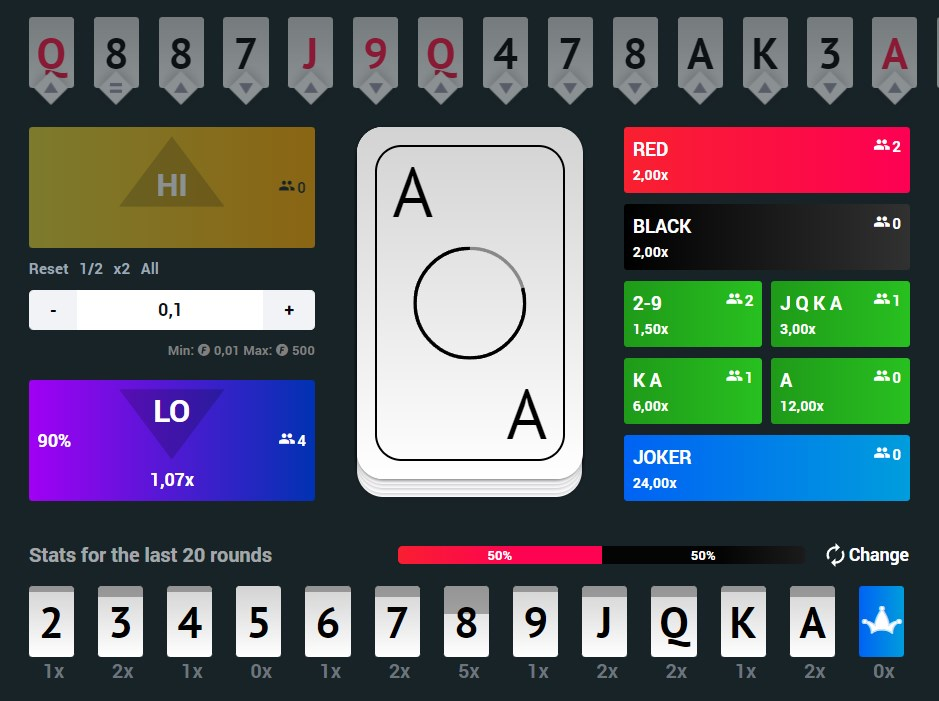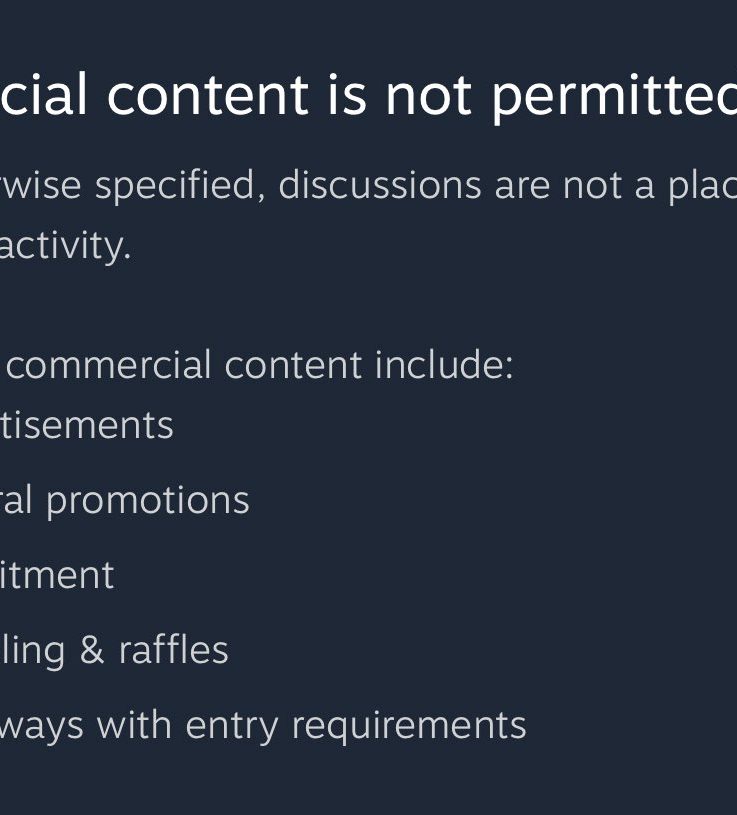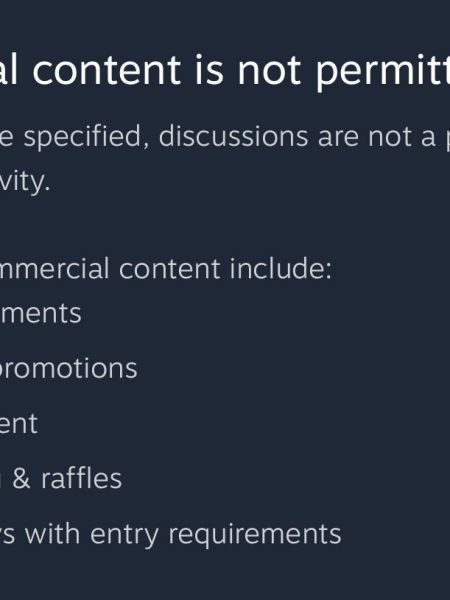
The Ultimate Guide to CS2 Gambling Sites in 2024
In the fast-paced world of online betting, CS2 gambling sites have carved out a niche, offering a unique blend of gaming excitement and betting thrill. These platforms merge the competitive spirit of Counter-Strike 2 with the chance-based allure of gambling, allowing players globally to engage in skin betting, match betting, and more. Whether you’re a seasoned bettor or new to the scene, registering an account opens the door to a world where strategic gameplay meets the unpredictability of gambling.
This extensive review will navigate you through the landscape of CS2 gambling sites in 2024, highlighting the top platforms where you can place your bets with confidence. We’ll explore why these sites stand out, the variety of betting options they offer, from traditional games to innovative wagering on CS2 matches, and the perks such as bonuses and jackpots that enhance your betting experience. Whether you’re looking to dive into the intricacies of gambling with in-game items or seeking tips to elevate your betting strategy, this guide has something for everyone. Let’s explore the exhilarating world of CS2 gambling sites together.
What Makes CS2 Gambling Unique?
What sets CS2 gambling apart from traditional online betting is the integration of gaming skills and knowledge. Unlike standard gambling, where luck plays a major role, CS2 gambling often requires an understanding of the game mechanics, player strategies, and the value of skins. This blend of skill, strategy, and luck makes CS2 gambling a unique and dynamic field within the online gaming world.
In CS2 gambling, players can bet on various outcomes of the game or use skins in different gambling games like roulette, jackpot, or coin flips. This versatility ensures that CS2 gambling caters to a wide range of preferences, making it appealing to both seasoned gamers and newcomers alike.
CS2 ROULETTE STRATEGIES
Remember to always play responsibly and have fun, and you will be on your way to winning big at CS2 roulette!
Dive into the strategic depths of CS2 Roulette with our expert guides. Whether you’re a seasoned player or new to the scene, our strategies like MartinGale and Fibonacci offer insightful tips to elevate your gameplay. Delve into our detailed articles for each strategy and master the art of CS2 Roulette.
News & Tips
Key Features of Top CS2 Gambling Sites
Security should be your top priority. You need a site that protects your personal and financial information and pays out your winnings promptly. So, what are the key features of a trusted CS2 betting site?
Licensing and Regulation
One of the most crucial features to look for in a top CS2 gambling site is proper licensing and regulation. A reputable site should be licensed by a recognized gaming authority, ensuring that they adhere to specific standards of operation, fairness, and security. This official regulation serves as a safeguard against scams and fraudulent activities, providing players with a sense of security and trust in the platform’s operations.
Secure Payment Options
The ability to conduct safe and efficient financial transactions is a key feature of leading CS2 gambling sites. These platforms typically offer a variety of secure payment options, including traditional methods like credit cards and e-wallets, as well as modern alternatives such as cryptocurrencies. The integration of SSL encryption for transactions further enhances security, ensuring that personal and financial data are protected from unauthorized access.
Variety of Games Offered
Diversity in game selection is essential for a top-tier CS2 gambling site. The best platforms offer a wide range of games, including popular options like roulette, coinflip, jackpot, and more. This variety caters to different player preferences and keeps the gaming experience fresh and exciting. Additionally, these sites often feature unique and innovative games, adding to their appeal.
Customer Support Excellence
Exceptional customer support is a hallmark of the best CS2 gambling sites. These platforms provide comprehensive support through various channels, including live chat, email, and sometimes phone support. A responsive and knowledgeable customer support team is crucial for resolving issues promptly and maintaining a positive user experience. The availability of a detailed FAQ section can also greatly enhance the support offered by the site.
If you want the best CS2 gambling experience, look for a site that checks all these boxes.

Most popular this month


Your Go-To for Online Gaming Excellence. From top slots to live dealer action, discover it all in our expert review. Safe, fun, and rewarding!
| 👉 cs2bet.ing | Free Coins & Bonus Codes |
| 💎 Esports Betting | CS2 Case Opening |
| 💰 CS2 Roulette | Tips & Strategies |
| 🍒 Dice Games | Free Skins & Giveaways |
CS2 Skins Betting: A Thrilling World of Opportunities 🎮
Welcome to the thrilling world of CS2 gambling – a niche that has transformed the landscape of online gaming. CS2, or Counter-Strike: 2, extends beyond being just a game; it’s a cultural phenomenon that has spawned an entirely new realm of online betting. In this segment, we’ll explore what CS2 gambling is and why it has captivated a vast audience worldwide.
CS2 gambling revolves around the use of virtual items, known as ‘skins’, from the CS2 game. These skins are more than mere aesthetic enhancements; they have intrinsic value in the virtual marketplace, making them perfect for use in online betting. This unique aspect of gambling, coupled with the excitement of CS2 gameplay, creates an immersive and engaging experience for players.
The Exciting World of CS2 Skins

Understanding CS2 Skins
In the realm of CS2, skins have become more than just virtual cosmetic enhancements; they are a pivotal part of the game’s culture and economy. Skins refer to the various designs and textures that can be applied to weapons or equipment in CS2, altering their appearance. These skins are highly coveted items within the gaming community, often traded and used as a form of virtual currency.
The allure of skins lies not only in their aesthetic appeal but also in their rarity and perceived value. Certain rare skins are highly sought after and can command significant real-world value. This has led to the emergence of a vibrant market where players trade skins, sometimes at substantial prices.
The Role of Skins in CS2 Gambling
Skins play a central role in CS2 gambling. They can be used as a form of currency in various betting games on CS2 gambling sites. Players deposit their skins into a collective pool in games like Jackpot or use them for individual wagers in games like Roulette or Coinflip.
The value of the skin often determines the player’s stake in the game. This system adds an interesting dimension to CS2 gambling, as players not only bet on the outcome of the games but also trade and showcase their collection of skins. It creates a unique ecosystem where the thrill of gambling is combined with the excitement of collecting and trading in-game items.

Our Comprehensive Evaluation Process for Top-Rated Sites
When it comes to evaluating CS2 gambling sites, our approach is thorough and multifaceted. We delve into various aspects of each platform to ensure that we provide a well-rounded perspective. This process involves examining the site’s history, user reviews, gaming licenses, security measures, game variety, user experience, customer service, and more.
We also engage with the site firsthand to get a real feel for the user experience. This hands-on approach allows us to assess the functionality, responsiveness, and overall enjoyment factor of the site’s offerings.
Essential Criteria for Evaluating CS2 Betting Sites

1. Game Selection Diversity
A top CS2 gambling site should cater to a wide range of preferences with an extensive selection of games. We look for platforms that offer classic favorites like Roulette and Jackpot, as well as innovative and unique gaming experiences.
2. User Experience and Interface Design
The overall design and usability of the site are crucial. A user-friendly interface, seamless navigation, and aesthetically pleasing design enhance the gaming experience significantly.
3. Security Measures and Fair Play
Ensuring the safety of users’ data and funds is non-negotiable. We prioritize sites that employ state-of-the-art security measures like SSL encryption and are transparent about their fair play policies.
4. Deposit and Withdrawal Options
The best CS2 gambling sites provide a variety of convenient and secure deposit and withdrawal methods. This includes traditional payment methods as well as modern options like cryptocurrencies.
5. Responsive Customer Support
Exceptional customer service is key. We assess the availability and effectiveness of the support team, evaluating how quickly and efficiently they respond to and resolve user queries.
CS2 Gambling Games: A Rundown of Your Options
The world of CS2 gambling offers a plethora of games, each providing a unique thrill and style of play. Here are some of the most popular CS2 gambling games that you’ll find on top sites:
CS2 Roulette
CS2 Roulette has become a beloved game among gambling enthusiasts, thanks to its easy-to-understand rules. You can find this classic casino game on various gambling platforms, where players use their skins as currency, exchanging them for credits on the site.
The objective of CS2 Roulette is simple: bet on a color (black, red, or green), and hope that the roulette wheel lands on your chosen color. If it does, you’ll win a prize based on a predetermined multiplier, adding to the excitement of playing CS2 Roulette.
Coinflip
CS2 Coinflip is a game of luck, not unlike tossing a coin. Bet on either heads or tails, and the outcome of the flip determines the winner. Coinflip is popular due to its simplicity and the chance to win valuable skins without requiring special skills or strategies. Simply select the skins you want to bet, choose the side of the coin you believe will come up, and wait for the result! 🪙
Jackpot
Playing CS2 Jackpot can be an exhilarating way to gamble your skins and potentially win big. The value of the skins you contribute affects your chances of winning – the more valuable skins you add, the higher your chances of winning the jackpot. Various websites even offer bonuses or rewards to players who contribute a substantial number of skins to the pot. If you’re keen to test your luck, CS2 Jackpot is definitely worth a try!
HiLo Game

If you’re a fan of card games, CS2 HiLo Game could be the perfect choice for you. In this game, players guess the next card to be turned over from a deck of cards. Besides the basic gameplay, you can also win by placing bets on specific numbers or groups of cards. There are also variations of HiLo available on different gambling sites, each offering unique odds and gameplay mechanics. This makes CS2 HiLo a versatile and exciting game to try out.
Case Opening
On Case Opening Sites, players deposit skins or real money to earn credits. Then, they can select from a variety of pre-made cases or even create their own, choosing the items they wish to include and their respective percentage chances. Once a case is set up, players can use their credits to open it and see what they’ve won. This offers an intriguing and exciting way for players to potentially acquire valuable skins.
Dice Game
In the CS2 Dice Game, players use a slider to set a limit between 0.01 to 100.00. The goal is to get a “dice” roll lower than the set limit. The lower the limit, the higher the payout multiplier. Players can set their limits according to their risk tolerance, making it a game that caters to both risk-takers and those who prefer to play it safe.
CS2 Crash

In CS2 Crash, players bet on a rising multiplier that can crash at any moment. The goal is to cash out before the multiplier crashes. The longer you wait, the higher the multiplier and potential winnings – but also the higher the risk of losing everything. It’s a high-stakes game that can lead to massive wins if you play your cards right.
These are just some of the diverse and exciting games you can find in the world of CS2 gambling. Whether you’re a seasoned pro or a newcomer, there’s always something to try out and enjoy in this vibrant e-sports community.
Free CS2 Gambling Sites
The world of CS2 gambling offers an exhilarating journey, especially with the availability of free CS2 gambling sites. These platforms provide an excellent opportunity for both new and seasoned players to immerse themselves in a risk-free gaming environment. Let’s explore the various aspects of these free sites and how they enhance your gambling experience.
Understanding the Daily Bonus Feature
One of the most attractive features of free CS2 gambling sites is the daily bonus. This feature allows players to open a bonus case every day, offering a range of free bonuses. These bonuses vary, ranging from highly sought-after CS2 skins, which add flair to your in-game avatar, to exclusive gambling codes that grant access to a variety of games on the site. The daily bonus serves as a key to a treasure trove of free items, enriching your overall gaming experience without any financial commitment.
Welcome Bonuses for New Players
In addition to the daily bonus, free CS2 gambling sites often offer enticing welcome bonuses to new players. These are designed to give you a head start when you sign up or create an account. Typical welcome bonuses may include a free initial deposit for participating in games or rewards for transferring items to the site. Some platforms might require entering a specific code to activate these bonuses, so it’s worth keeping an eye out for these special offers.
The Benefits of Free Gambling Sites
The primary advantage of free CS2 gambling sites is the ability to enjoy the thrill of gambling without the risk. These sites provide a platform for players to engage in various games, understand the mechanics, and develop strategies, all without the pressure of wagering real money. Additionally, the chance to win actual skins and other rewards adds an element of excitement to the experience.
Maximizing Your Experience on Free Sites
To make the most of your time on free CS2 gambling sites, it’s important to:
- Regularly claim your daily bonuses to accumulate as many free items as possible.
- Keep an eye out for special promotions or events that may offer additional bonuses or rewards.
- Engage with the community on these platforms to share tips and strategies.
- Use the opportunity to familiarize yourself with different types of gambling games in a risk-free environment.
A Gateway to Enhanced Gambling Skills
Free CS2 gambling sites not only provide a platform for entertainment but also serve as a training ground to hone your gambling skills. By playing regularly and exploring various games, you can develop a deeper understanding of gambling strategies and decision-making, which can be beneficial if you decide to transition to real-money gambling in the future.
In summary, the world of free CS2 gambling sites is rich with opportunities. Whether you’re looking to enhance your in-game avatar with unique skins, explore different gambling games without financial stakes, or simply enjoy the thrill of gambling, these platforms offer a comprehensive and enjoyable experience. Remember, the more you engage, the more you stand to gain in the exciting world of CS2 gambling.
A Closer Look at CS2 Gambling Games 
Different CS2 gambling sites offer an array of games, each with its unique appeal.
When betting your CS2 skins, it’s important to play games that align with your interests and to only bet what you can afford to lose. The house edge is a crucial factor to consider, as it impacts your chances of winning. Each game has different odds, and understanding these can help you make more informed decisions.
Responsible Gambling
Remember, the key to enjoying CS2 gambling is responsible play. Always wager within your means and be mindful of the risks involved. Gambling should be a fun addition to your gaming experience, not a financial burden.
Diving Deep into the World of Cosmetic Skins in CS2
CS2 skins are more than just virtual cosmetic enhancements; they’ve become a cultural phenomenon within the gaming community.
The Appeal of Skins
- Aesthetic Enhancement: Skins allow players to customize the appearance of their in-game characters and weapons, adding a personal touch to their gaming experience.
- Market Value: Some skins, especially rare ones like certain knives, can be extremely valuable, selling for substantial amounts of real money.
- Collectability: Collecting different skins has become a popular aspect of the game, with players often trading or purchasing skins to complete their collections.
The Skins Market
The market for CS2 skins is vast and active. Players can buy skins through the game or trade them on various platforms. Many choose to purchase skins with real money for that added flair to their in-game persona. This marketplace not only serves as a trading hub but also as a community for enthusiasts to share their interests in skins.
Skins in Gambling
In CS2 gambling, skins often act as currency. This integration adds an extra layer of excitement for players, as they can wager skins in various gambling games, potentially winning more valuable ones.
In conclusion, whether you’re gambling with skins, collecting them, or just admiring their aesthetics, the world of CS2 skins offers a dynamic and engaging aspect to the gaming experience. If you’re a CS2 fan, delving into this vibrant world can add a new dimension to your gameplay. Remember to engage with this aspect of the game responsibly and enjoy the unique culture that CS2 skins have created.
Bonuses and Promotions on CS2 Gambling Sites
Bonuses and promotions are central features when considering a CS2 gambling site. Renowned platforms offer an array of incentives to draw in new players and reward their loyal users. Here are some common bonuses and promotions you may find:
- Welcome Bonuses: Most CS2 gambling sites offer new players bonus funds or free coins upon registration or their first deposit. This benefit allows you to kickstart your gambling journey with an increased bankroll.
- Daily Free Coins: Several platforms reward their users with daily free coins or tokens. You can use these to play games and potentially win skins or other prizes.
- Giveaways and Contests: Regular giveaways and contests offer additional chances for users to win valuable skins, coins, or other rewards.
When selecting a CS2 gambling site, it’s beneficial to consider their bonuses and promotions, as these can significantly elevate your overall gambling experience.
Deposits and Withdrawals on CS2 Gambling Sites: Pivotal to a Seamless Gaming Experience
Managing your funds efficiently is a critical aspect of the online gambling experience, especially in the realm of CS2. High-quality CS2 gambling sites understand this and offer various payment methods to cater to different user preferences. Here’s a look at the most common options available:
CS2 Skins as Currency
- Functionality: Many CS2 gambling sites allow players to deposit and withdraw using their in-game skins. The platforms typically convert the skins’ value into virtual coins or tokens, which can then be used for gambling on the site.
- Popularity: This method is particularly favored by players who have amassed a collection of valuable skins, as it provides an easy way to utilize these assets for gambling without involving real money.
Cryptocurrencies: A Modern Payment Method
- Advantages: The rising popularity of digital currencies has led many CS2 gambling sites to incorporate options like Bitcoin and Ethereum. These cryptocurrencies offer quick, secure transactions with the added benefit of anonymity.
- Accessibility: Cryptocurrency transactions are becoming increasingly mainstream in online gambling, appealing to players who prioritize privacy and security.
Traditional Payment Methods
- Options: In addition to skins and cryptocurrencies, some CS2 gambling sites also support traditional payment methods. These include credit cards, PayPal, and bank transfers, offering a familiar mode of transaction for many users.
- Reliability: These conventional methods are widely accepted and provide a sense of security and trust, especially for players who are new to online gambling or prefer traditional banking options.
When choosing a CS2 gambling site, it’s important to consider the range and security of payment options. A site with diverse and secure payment methods is more likely to offer a hassle-free and enjoyable gambling experience. Always prioritize your comfort and safety when engaging in online gambling activities.
Security and Regulation: Ensuring Safe Gambling
Effective customer support is essential in ensuring a positive online gambling experience. CS2 gambling sites with strong customer support systems can significantly enhance your overall experience.
Importance of Responsive Support
- Channels of Communication: The best CS2 gambling sites provide prompt and professional support through various means, including live chat, email, social media, and sometimes phone support.
- FAQs and Resources: A well-maintained FAQ section can be an invaluable resource, offering quick solutions to common issues and questions.
Evaluating Customer Support
- Responsiveness: The speed and clarity with which a support team responds can be a key indicator of a site’s overall quality. Efficient customer service ensures that any issues you encounter are resolved promptly.
- Knowledge and Helpfulness: The competence and friendliness of the support staff are also crucial. They should be knowledgeable about the site’s operations and eager to assist you.
Good customer support reflects a gambling site’s commitment to user satisfaction. It’s an aspect you shouldn’t overlook when choosing a CS2 gambling site. After all, knowing that you have reliable support at hand can make your gambling experience much more enjoyable and stress-free.
































